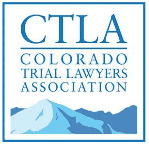Request a Free Consultation | No Upfront FeesSe Habla Español
970-225-2190 |
1-800-664-3151
Who Can File a Wrongful Death Claim in Colorado?
 Losing a loved one unexpectedly can be a devastating and confusing time in a person’s life. When a loved one loses their life in an accident, their family may face many unforeseen expenses and the loss of their loved one’s wages may severely affect their livelihood. If you are considering filing a wrongful death claim after the death of a loved one, you should understand the laws that must be followed in order to seek compensation effectively.
Losing a loved one unexpectedly can be a devastating and confusing time in a person’s life. When a loved one loses their life in an accident, their family may face many unforeseen expenses and the loss of their loved one’s wages may severely affect their livelihood. If you are considering filing a wrongful death claim after the death of a loved one, you should understand the laws that must be followed in order to seek compensation effectively.
Defining Wrongful Death in Colorado
In the event that an individual loses their life to another party’s wrongful act or negligence, a wrongful death claim may be pursued by the appropriate parties. Wrongful death claims are applicable in situations where the victim would have been able to bring an injury claim against the at-fault party, had they survived the accident. Wrongful death may result from numerous types of accidents including car accidents, defective products, and medical malpractice.
Both economic and non-economic damages may be available during a wrongful death case. In Colorado, economic damages may include funeral expenses and loss of compensation the victim would have earned had they survived, among other losses. Alternatively, noneconomic damages involve less tangible damages such as grief, pain and suffering, and loss of companionship.
In order for a plaintiff in a wrongful death case to recover any eligible damages, they must abide by the statute of limitations. In Colorado, there is a statute of limitations of two years for this type of claim. It is important to note that there are exceptions to this law and you may want to speak with an attorney if you believe you qualify for postponement.
Who is Eligible to File for Wrongful Death?
Before pursuing a wrongful death claim, it is important to understand that Colorado only allows certain individuals to file for wrongful death of a loved one. If the victim left behind a surviving spouse, the spouse is the only individual allowed to file a wrongful death claim within the first year following the death. However, there are exceptions to this rule including:
- The surviving spouse elects to allow the victim’s children to file the lawsuit
- The victim was unmarried, in which case the claim may be filed by the victim’s children or designated beneficiary
In the second year following the victim’s death, there are numerous other parties in addition to the surviving spouse who may file the claim including the surviving children and any designated beneficiaries. It is also possible for these parties to pursue a wrongful death claim together in a collaborative effort.
Alternatively, if the deceased person was not married, did not have any children, and did not designate a beneficiary before passing, the deceased’s parents may be able to file the wrongful death claim.
Contact our Fort Collins Wrongful Death Attorneys Today
At Hoggatt Law Office, P.C., we understand that no amount of money will alleviate the pain a family suffers after losing a loved one. However, receiving financial relief and holding the negligent parties accountable may help to ease the burden. Our Larimer County wrongful death attorneys are knowledgeable and compassionate and will handle your case with integrity and care. Call 970-225-2190 today to schedule a consultation.
Sources:
https://cle.cobar.org/tableofcontents/ZWDLHC02B.pdf

970-225-2190 | 1-800-664-3151
1403 W. 29th St.,
Loveland, Colorado 80538
Greeley:
3835 W. 10th Street, Unit 100,
Greeley, Colorado 80634|
970-460-2220
Longmont:
353 Main Street, Suite A,
Longmont, Colorado 80501|
720-575-0509
Boulder:
4450 Arapahoe Avenue, Suite 100,
Boulder, Colorado 80303|
303-997-2018
Ft. Collins:
123 North College Ave., Suite 160,
Fort Collins, CO 80524|
970-225-2190
Cheyenne:
109 E. 17th St., Suite #6148,
Cheyenne, WY 82001|
307-227-4051 (By Appointment Only)















